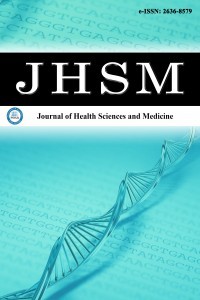
Journal of Health Sciences and Medicine
Yazarlar: Çaşıt Olgun ÇELİK, Orçun ÇIFTCI, Gaye ULUBAY, Haldun MÜDERRİSOĞLU
Konular:Sağlık Bilimleri ve Hizmetleri
Anahtar Kelimeler:COVID-19,QTc,ICEB,Repolarization,Hydroxychloroquine
Özet: Aim: Hydroxychloroquine (HCQ) is widely administered to patients with confirmed or suspected COVID-19. It may increase the risk of cardiac arrhythmias associated with QT and QTc prolongation. This study aimed to assess the change in iCEB, a new marker of drug-induced arrhythmia, and other repolarization parameters in suspected COVID-19 patients treated with short-course HCQ. Material and Method: This was a retrospective cross-sectional study including 40 patients hospitalized with suspected COVID-19 according to the CT findings and treated with HCQ. Serial assessments of the QT and QTc intervals and the calculation of the index of cardio-electrophysiological balance (iCEB) were performed using standard 12 lead electrocardiogram before hydroxychloroquine treatment, on the second day of HCQ treatment, and after the day of the last administered dose. Results: QT, QTcB, QTcF, iCEB, iCEBcB significantly increased on the second day of HCQ treatment compared to baseline (p=0.009, p=0.001, p=0.002, p=0.047, p=0.05, respectively). Similarly, QT, QTcB, QTcF, iCEBcB and iCEBcF were significantly higher on the fifth day compared to baseline (p=0.011, p=0.005, p=0.005, p=0.013, p=0.028, p=0.024 respectively). However, there were no differences between the second and the fifth days of treatment for any of the studied parameters. Conclusions: QT, QTc, and iCEB significantly increased compared to baseline on the second day, and remained increased on the fifth day of treatment. The differences were attributed to the amount of loading dose and the duration of HCQ treatment. Our study suggests that, along with other ECG markers, iCEB can be used in COVID-19 patients treated with HCQ.